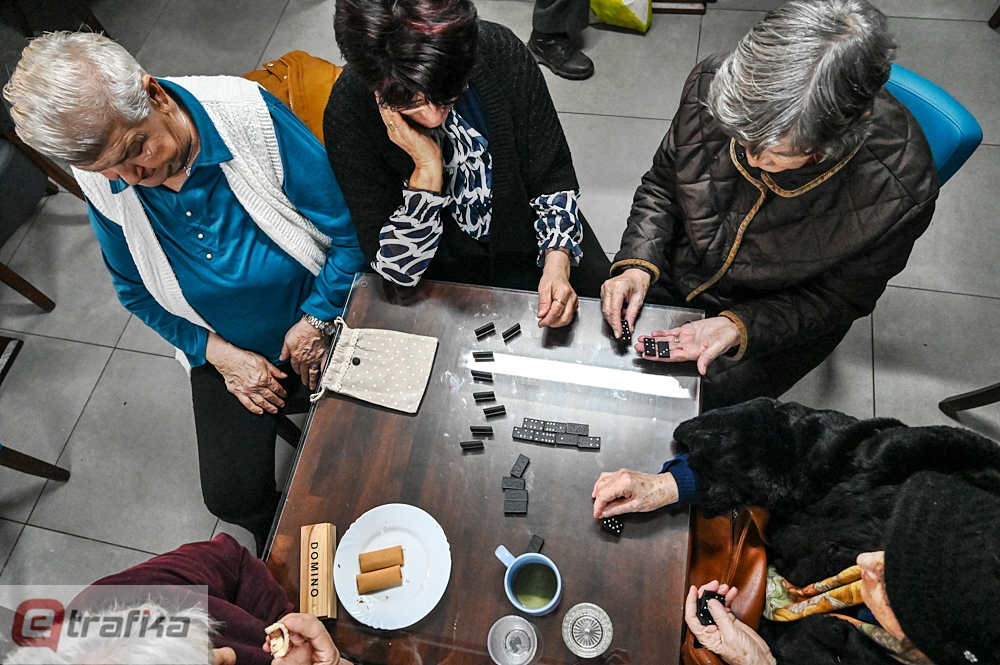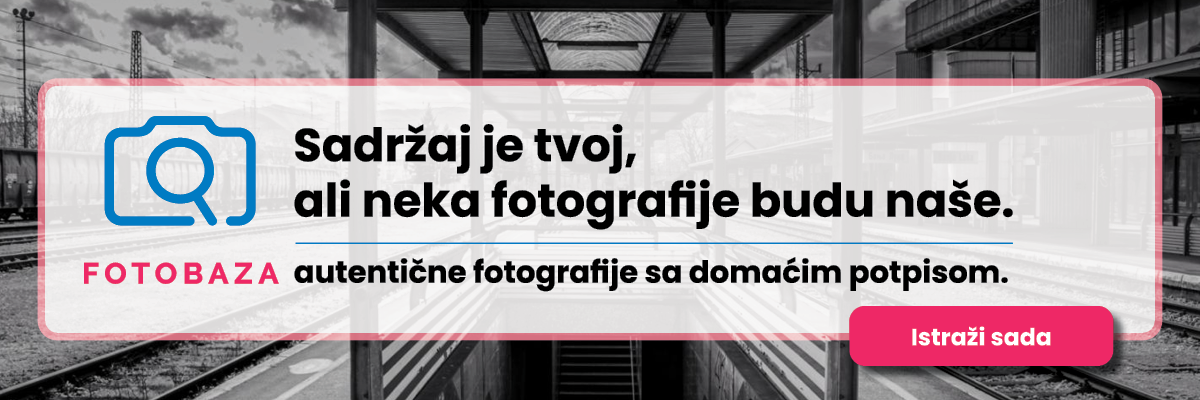Hundreds of souls come to this dilapidated building, located in Banja Luka, Cara Lazara street no. 20. They have different needs, so some come here because their stomach is empty, some because they are barefoot, and some because of sorrow of soul. No matter what the reason is, they leave this small building a bit richer than they were when they came.
Written by: Vanja Stokic; Photographs taken by: Ajdin Kamber
This is the address of the Civic Association „Mosaic of Friendship“, a place which enjoys huge respect among the citizens of Banja Luka, who often donate food, clothes, money, furniture, construction material and anything else that the Asociation staff needs. Known for its humanitarian work, above all public kitchen and public bath, this Association also organises an extremely important activity, which is not related to the social status of its beneficiaries. Every working day, from 8 a.m until 2 p.m., about fifty older women gather here in the largest room of the Association, being simultaneously used as a restaurant and a place for socializing. Even though it is called the „Grandma's Corner“, this section of „Mosaic of Friendship“ does not divide its beneficiaries based on gender and sex, therefore you can see few grandpas among grandmas.
The main activity of the „Corner“ is socialisation with tea and coffee. Sometimes there is something to eat as well, given that the Mosaic's cooks are in the room next to this one. Some people bring cards, dominoes or chess. Those who wish not to talk just sit down and quietly read the newspapers. But they are never alone, since the main reason for their coming here is to avoid being alone, being without company.
For Gospava Matovina, visits to the “Grandma’s corner“ is a sort of escape from the hard life she has. This 70-year old pensioner is hardly making her ends meet, living with her daughter who has developmental disabilities. As we speak, she shows us that she does not have two fingers that were cut off. Because of this disability, she receives monthly invalidity pension amounting to 18.50 BAM (9.50 EUR).
“I had a big debt for electricity bills, and I am currently paying for the debt reprogramming. We live in a substandard house, with income that is insufficient for our survival. This creates a huge pressure, causes anxiety. I barely managed to get back on my feet. I was using the walker for three months”, she explains.
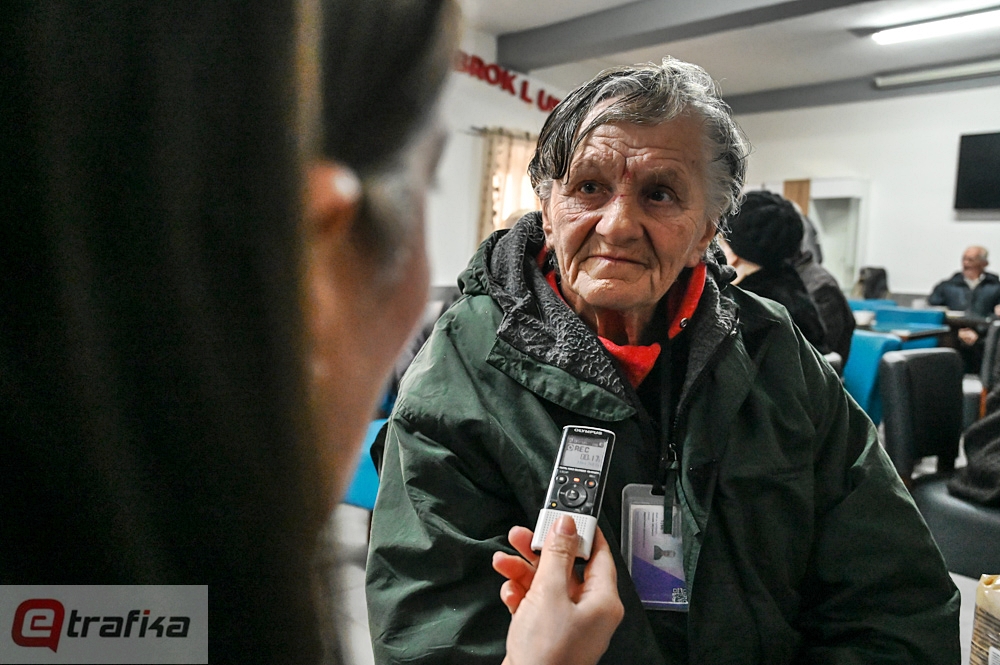
She cannot describe exactly how she feels or whether she sees a way out of this situation. She just repeats that it is hard for her. She feeds herself in the Red Cross public kitchen, and has been coming to the “Grandma's Corner“ for years.
“This is the only place where I can come to socialize with others. One can relax here, people are truly nice. I try to come as often as I can. Sometimes I am unable to because of my daughter as I have no one to leave her to. I am not in the best of health either. Kudos to the staff. I am overly satisfied with these people. This year we went to the seaside for 12 days, everything was free of charge, my daughter went with me as well. I could not believe it when they told me here that they would send us to the coast”, she says.
The vacation, which she mentions, is a routine thing in the “Mosaic of Friendship“. Every year, the Association management selects about fifty beneficiaries which they take on a ten-day vacation. With the help of donors and sponsors, all the costs are covered for. For most of them this is the first and most likely the only chance to hear the sea waves and feel the salt on their skin.
Do you like this story? Support eTrafika with a symbolic subscription on Patreon and help us create more stories like this one.
However, not all the beneficiaries of the “Grandma’s Corner” are socially disadvantaged. You can find women who are in a good housing and financial situation, along with those who need assistance as they are on the edge of survival. We know Milica Vuletic (84) from our earlier visits to the “Grandma’s Corner”. She is a cheerful woman, always in a talkative mood. She explains that she has been a regular, daily visitor of the “Corner”. For years.
“There is nothing of the kind in our city. There were many centres before, but were closed down. We pay a 20 BAM membership fee, and may come whenever we wish. Or we do not have to come at all, if so preferred. But do you know why we come here? Simply to change the surrounding. We come to socialise, to talk”, grandma Milica says, while her friends listen to her carefully.
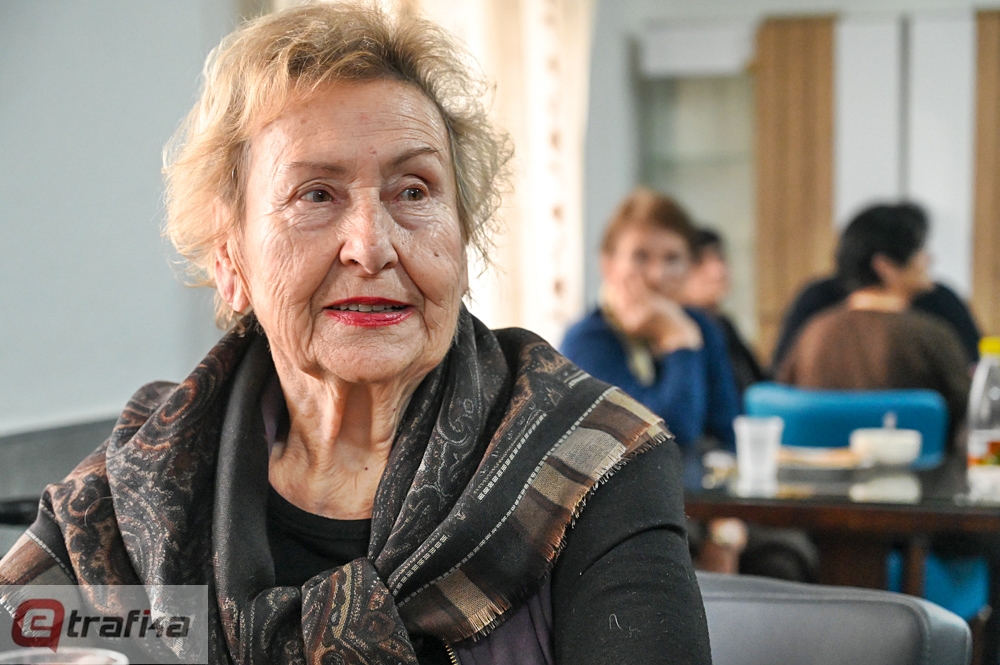
She is trying to convey to us how much the “Grandma’s Corner” means to all the beneficiaries. She mentions decoupage and painting workshops which are occasionally organised, then joint physical exercises, as well as culinary activities. She recalls how they have prepared cabbage for the winter salad, painted Easter eggs, baked pancakes.
“We went to the theatre and on field trips. This summer we visited the Balkana Lake, two years in a row we went to the Kozara mountains. We spent the entire day hanging out with each other, with everything being provided free of charge. We had a barbecue, played volleyball… Since I am invalid, I have difficulties walking. Some of them helped me cross the stream this summer by carrying me. I have a walker, so it was so funny to see them carry me around, you can only imagine how hilarious it looked like”, she retells cheerfully.
As we talk, there is a murmur around us. About fifty people speak at the same time, one of them even sings. And nobody seems to mind.
“I have been retired for already 33 years. It is important for me to change my daily environment. To get out of the house, to go out, to go somewhere different. Even when you go from one room to another, you change something. Let alone to go to a place where you can find 40-50 persons, hear a joke, sometimes sing, sometimes laugh, hear all sorts of things”, grandma Milica continues, being supported with the affirmative nodding of her friends, sitting at the same table.
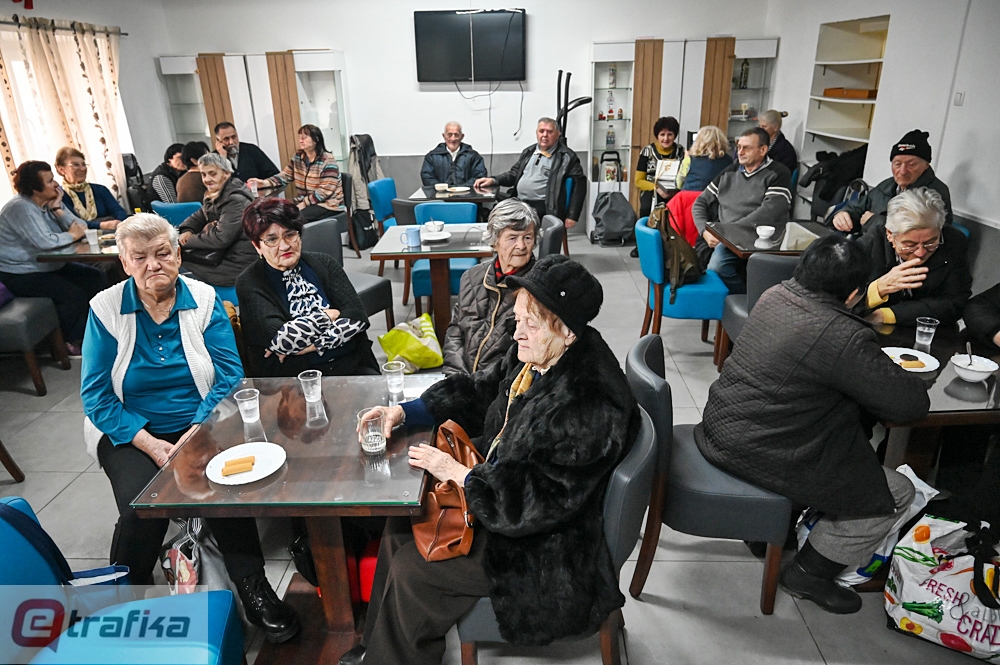
She goes on by explaining that she had worked for 30 years in the financial department of a company. Her retirement implied a sudden retreat into the house. She lives alone. Her son and daughter live in the same city, but they have their own families.
“The most valuable thing is companionship. That people are not lonely. Because there is a difference between being surrounded by four walls, alone, and being among people, communicating with them. We are social beings. To be alone means that a person closes in on himself, and becomes lonely. And here, if nothing else, we hear something new on a daily basis. Be it goods news, bad news, be it that someone got a grandchild. Just to be here is a big deal for these people”, she elaborates.
The social status of these people differs. Some of them have very low pensions, insufficient to survive, and these people get food here, in addition to having an opportunity to socialise.
“Those of us with higher income are outnumbered. I come here just for companionship. Pensioners are disadvantaged because of low pensions. Everything is expensive. What can a pensioner buy with 300 BAM or 500 BAM-worth pension? Every income below 800-900 BAM is equal to social welfare”, she highlights.
Slavenka Banjac (89) is sitting at the next table, and is telling us that she has been coming to the “Grandma’s Corner” for the last three years. She adds that she lives together with her daughter and her two sons.
“But everyone is in the separate room, as if each of them lived alone. No one has time for this old grandma, they all mind their own business. I come here every day to talk to these nice ladies, to keep myself busy. I feel somewhat better when I am here. I am not as sad as when I am alone in the house, that feeling disappears. A big change which, as it seems to me, is doing me good”, she is being truthful.
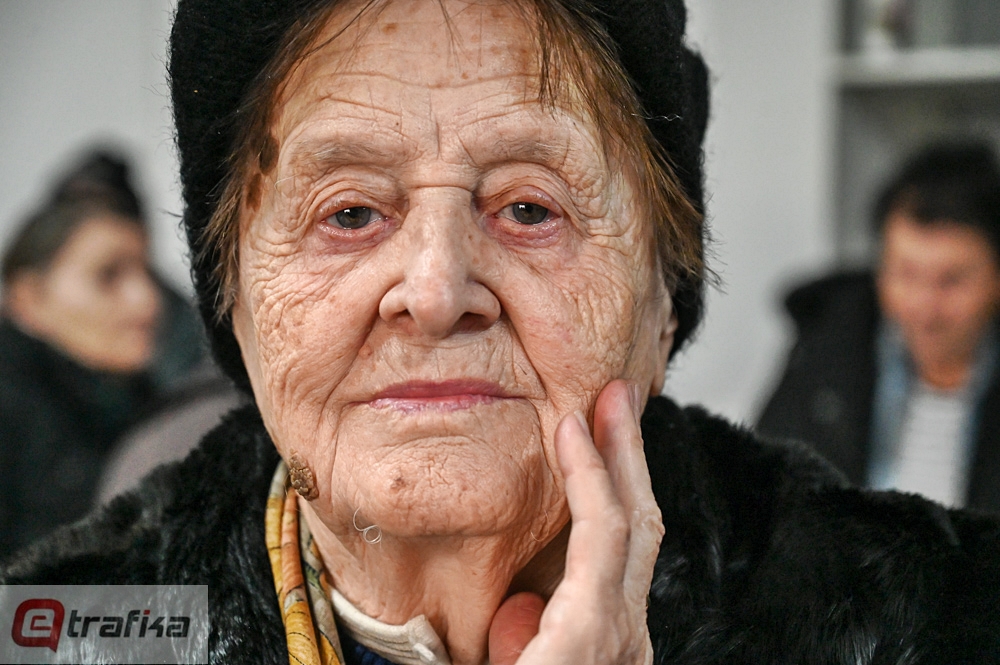
The “Grandma’s Corner” opened some five years ago. Right before the outbreak of the Covid pandemic. People from the “Mosaic of Friendship” realized that loneliness was a huge problem for older people. They mostly leave alone, having no social activities in their lives. The “Mosaic” had a good will and available space, so they decided to do something for these people.
“Our idea was to launch the “Grandma’s Corner” where these people would be able to socialise and spend some good time on a daily basis. We did this in cooperation with the Centre for Social Work, which has been supporting us all these years. So, beneficiaries play cards here, dominoes, have a cup of tea or a cup of coffee, they talk, and fill their day, which they would otherwise spend alone, in the house”, Snjezana Demirovic from the “Mosaic of Friendship” tells us.
The work of the “Grandma’s Corner” is supported by only one institution, which is Centre for Social Work. Every month the Mosaic receives 1,707 BAM (875 EUR). From this amount, they spend 1,030 BAM (528 EUR) on food and drinks for their beneficiaries, whereas the remaining amount is used to cover the salary of the social worker who works in the “Corner”. This amount is not enough to cover all expenses.
“Luckily we have tea and coffee donations. Donations from good people who bring cakes, cookies and the like, so beneficiaries have something every day. When you have 1,030 BAM available, and buy necessary staff on a monthly basis, then divide it by days and by 50 people who come here every day… We also make them breakfast, serve cookies with a hot drink. All those who are socially disadvantaged take a loaf of bread back to their home, have a lunch here and everything that follows”, Snjezana explains in which way the “Grandma’s corner” operates.
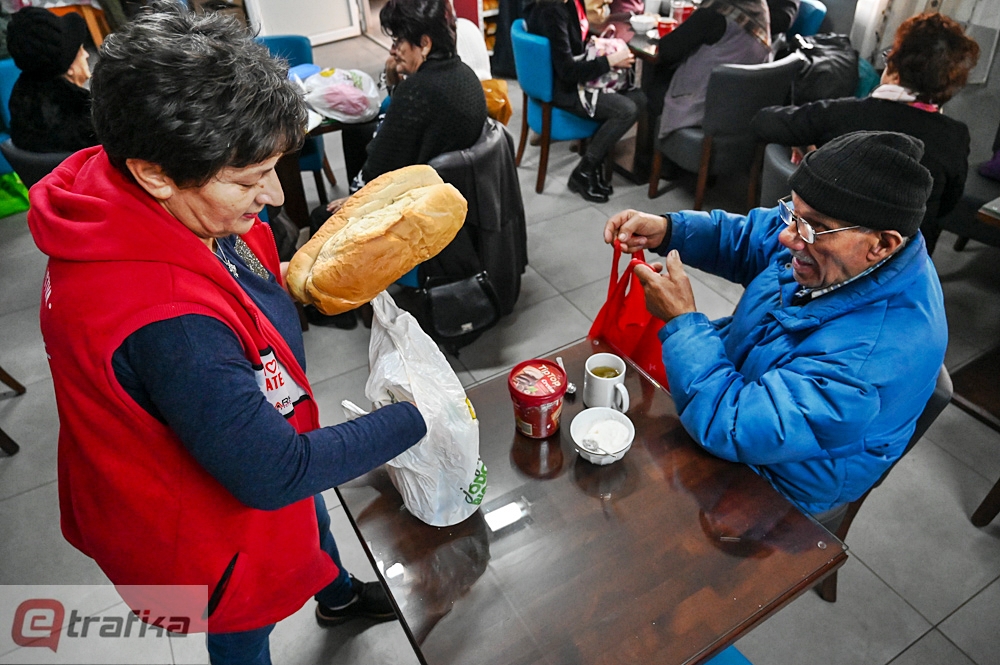
Food and drinks are not the only expense. While we are having this conversation, the temperature outside is below zero. The beneficiaries cannot sit for hours in a cold room, therefore the “Mosaic of Friendship” staff has to buy woods for heating to warm up the room. The building in which they are located is dilapidated and does not belong to the Association. They were given it for use by the Banja Luka City Administration, however not free of charge. The “Mosaic of Friendship” receives 12,000 BAM annually from the City Administration. They practically pay this amount back to the City through a lease.
“We pay both for the lease and for the bills. We receive 400 BAM-worth monthly bills for electricity, water and God knows what else”, Snjezana adds.
The “Grandma's Corner” is filled to capacity. Fifty people per day is the maximum that can fit in this room. However, the needs are much higher, especially in other parts of the city. Given that these are all older people with health difficulties, the “Corner” is far away from them to reach it.
“There is no other daily centre in the city of Banja Luka, except for ours. Those who are ill, those who are far away simply cannot come here. That is why we are planning to open another centre in the Vrbanja settlement. We have done our best to prepare the location, of course with the support of good people. There is nothing we can do on our own”, Snjezana announces another activity similar to this one for those who live on the other side of the city.
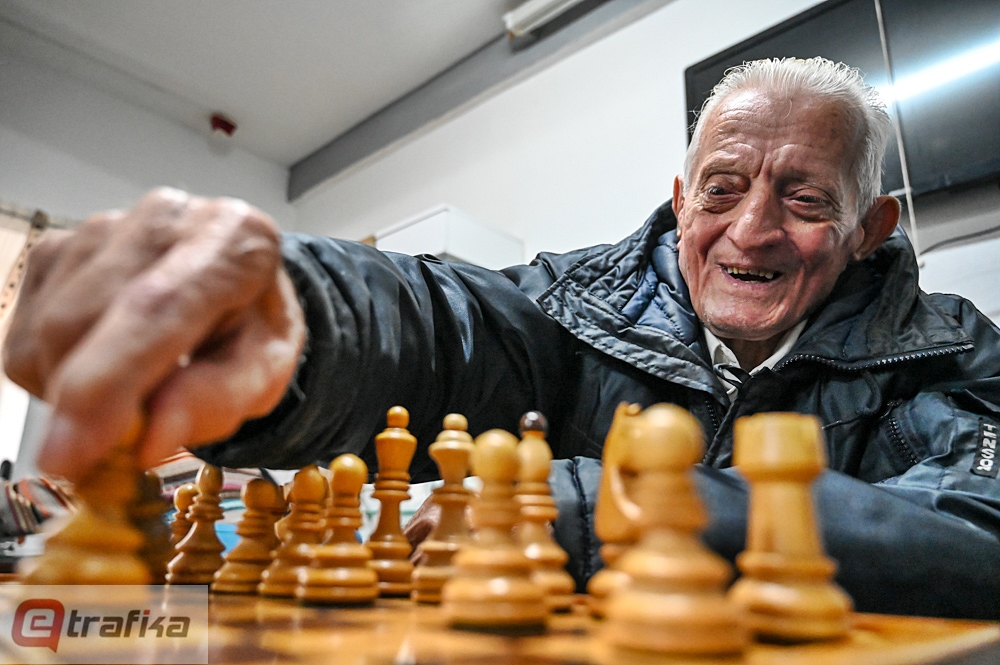
These people are connected by loneliness and the desire to escape from it, at least for a few hours a day.
“This condition also represents a psychological burden for them. Some have children, but the children have no time for them. Life is turbulent. Even if the children wanted to spend some time with the elderly, they simply would not be able to find that time. And it means a lot for these older people to come here. They, for example, read newspapers. It does not matter that they read newspapers alone, they are among other people. At home they are truly lonely. For some of them this is the only reason to tidy up when they leave their homes”, Snjezana highlights.
As the name suggests, the “Grandma's Corner” is focusing on older women. But it does not mean that the door is closed to men, nevertheless it is recognised that older women in Banja Luka do not have the same opportunities as older men do.
“Women are neglected. Men have more entertainment at their disposal in the city, for example outdoor chess, their social life is a bit better”, says Snjezana.
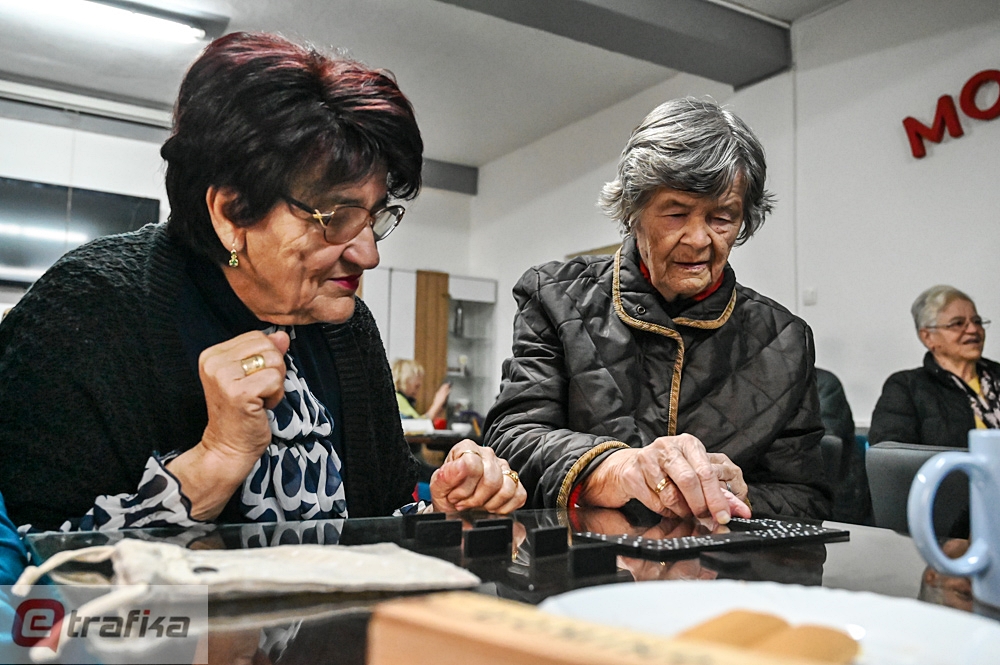
Throughout these five years, various volunteers have been coming to the “Corner”, and have been brightening up the grandmas’ and grandpas’ days. Some help them exercise, some read them poetry, and some take care of their mental health. In recent months, every two weeks, a psychologist comes here as a volunteer. He does not want us to mention his name, but he emphasizes that his work was born out of love for people. He found out about the “Grandma's Corner” from an acquaintance, who is engaged as a volunteer at the “Mosaic of Friendship”.
“We talk about different topics. About depressed mood, stress, communication problems, various fears. From discussion about these topics, which are mostly about negative emotions, I sense their anxiety, hear about their expectations of the future which is to a large extent perceived negatively”, this psychologist further adds.
He goes on by saying that he is trying to improve their gloomy vision of the future. To make them realise that they have strength and the ways in which they can use this strength.
“It means to try to get them out of that dismal picture of the future at least a little bit, and to actually show them that not everything is quite as they think. That there are some nice things. That we do not really need that much in our lives, and that they are indeed rich people. Rich for having their families, grandchildren and so on. That is a true wealth. That they have friends, which is something to insist on, to renew these relationships. That they should not stay at home to prevent depression from growing”, he explains.
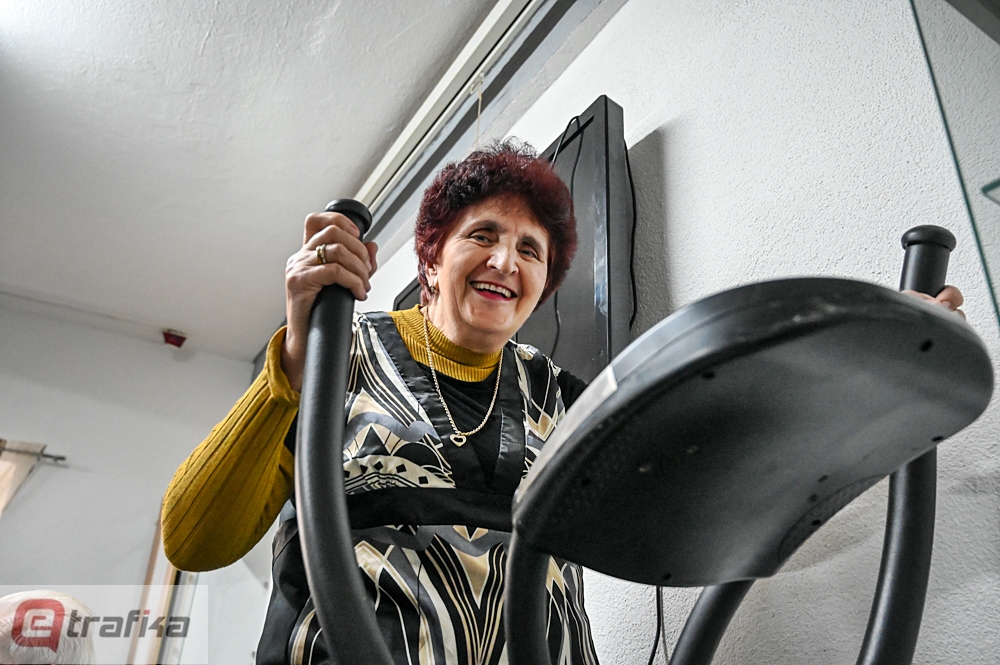
He points out that the greatest advantage of the “Grandma’s Corner” is that the beneficiaries are orientated to each other and that they socialise with each other.
“You can see when a person has problems. When a human just hugs another human, without saying anything, just giving a warm hug, it is as if 500 kg of problems get off a chest. A person feels lighter. As soon as someone feels that hug, he feels that he is not alone. For that reason, the biggest advantage is to have them here together”, he makes his point.
The concept of loneliness is most often associated with the elderly population. That loneliness is a fruitful soil for the development of various negative psychological conditions. The psychologist explains that this condition comes from the feeling of worthlessness, unwantedness, rejection. In order for a person to free himself from such a feeling, it is necessary to make the first step, to get out of the house.
“And it is exactly what they do here. There is a picturesque description of the depression, water which is stagnant and goes rancid, therefore cannot be drunk. It is the same with the person who is lonely, who does not get out, who sits at home the whole time, doing nothing. And it is then that the thoughts of worthlessness, unwantedness and rejection appear. Depression is getting stronger and the person is sinking more and more, having less energy, both life and emotional energy”, he describes.
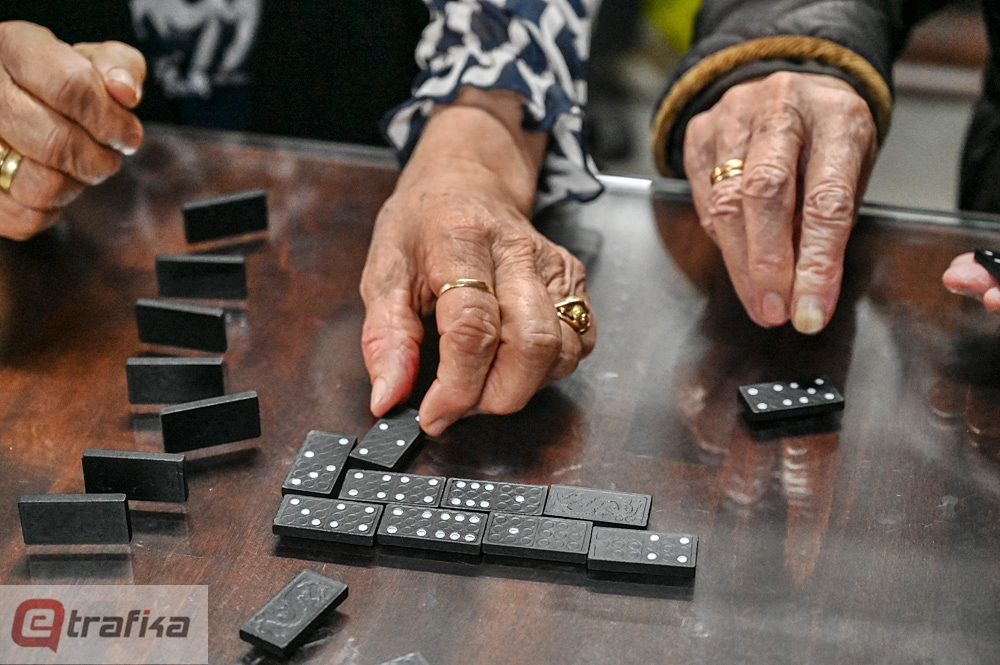
However, when a person moves, the said water beings to flow. The water becomes fresh and healthy over time. And that is where the “Grandma’s Corner” comes into play.
“I have been here for a short time, but I do notice that the beneficiaries have become more open for communication. When they came back from the coast, we talked about how they enjoyed it and what they did there. And before leaving they were all so excited for going on vacation. These are nice things, this is the water that flows”, the psychologist further explains.
He also advises the beneficiaries to watch political shows as little as possible, because they negatively affect their mental health. As he points out, when we are dissatisfied with the things around us, without a possibility to influence them, we get the feeling of helplessness.
“And helplessness eventually causes depression. When we think about some on-going life problems that can be resolved, and where the television on the other hand teaches us we are helpless, we approach our own life problems, which are resolvable, in a powerless manner. And we give up in the end”, he points out.
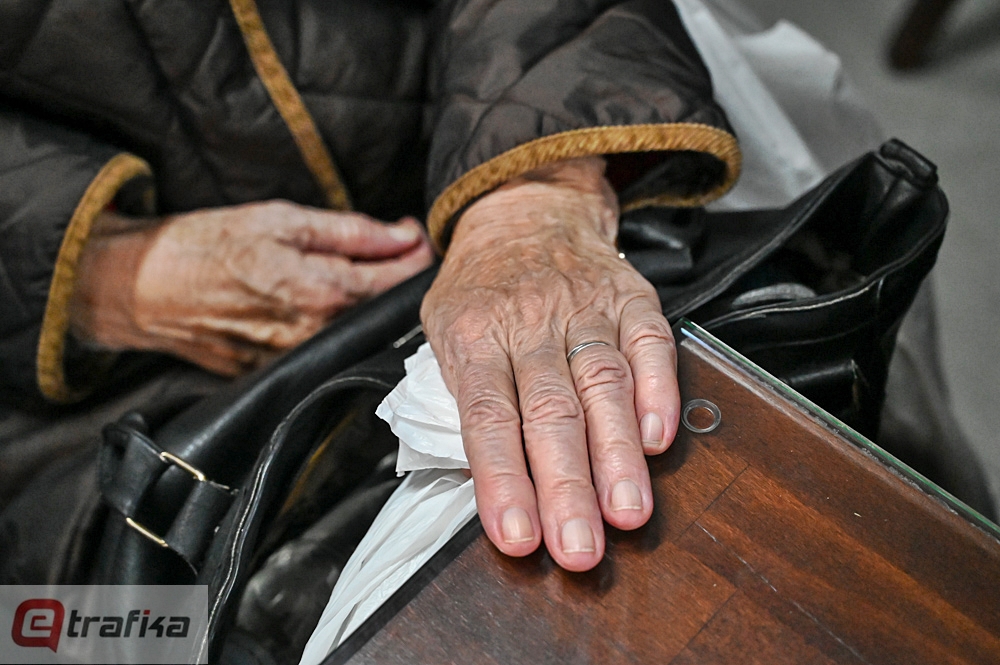
The very idea of opening the “Grandma’s Corner” came from the experience of working with the elderly. The initiative was mainly launched by the social worker Dragana Vucic, who wanted to enrich the everyday life of people who come to the “Mosaic of Friendship” for a meal. She recalls that it took about two months from the very idea to its realisation. The news spread very quickly among the beneficiaries.
“We had to make a selection because we could not accommodate so many people”, Dragana, who has been working for the “Corner” since 2018, recalls.
She says that the beneficiaries are bound to this place by their will to live. They have a wish to socialise and to keep up to date with information.
“The situation is that when people reach the third age of life, they most often feel rejected or as if being a burden to others, or unwanted. That they have become an extra baggage to their families. For example, a spouse is still employed, has his own obligations, children are preoccupied with their jobs, their worries, their families. And at some point, looking for the attention that they need, they often feel unaccepted”, she elaborates on the position of the elderly.
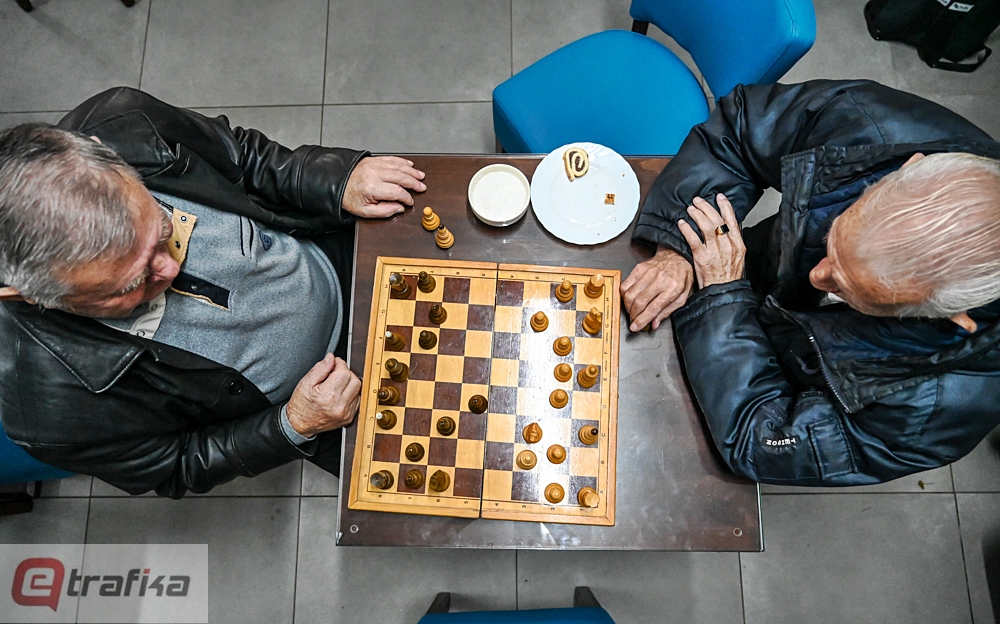
That is why daily centres are very important, as they bring together people of the same age, regardless of their social status. Through various activities, the Association receives feedback from the beneficiaries which helps them find the ways to assist the elderly and to learn about their needs.
“The initial idea was to make people relaxed through social games, so that they could fill up their free time. But then I launched workshops. First I launched physical exercises, which sometimes I lead, and some other times my sportsmen friends jump in. Then we arranged creative workshops, at which I would apply parts of occupational therapy. At the moment when some aspect of our personality undergoes crisis, occupational therapy helps us release these protective mechanisms as well as other mechanisms, the walls come down”, Dragana adds.
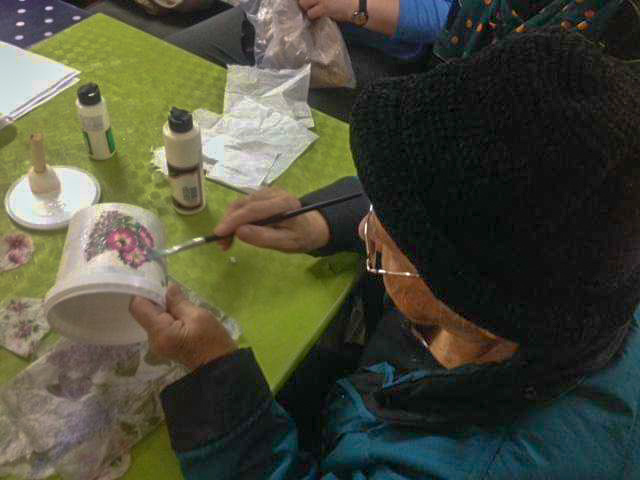
She points out that she could see the effects every day. She would simply watch how people’s mood changed for the better in just one day. Those who came depressed would leave fulfilled.
“There were some moments when certain beneficiaries were not able to come to socialise due to poor health. We would then call that person to make his day better. Or would go to visit him and bring him cookies. That was enough, this small sign of attention showing that somebody is thinking of him. To know that there is a place that is always open, that is there for him, and that there is someone who will welcome him. For these persons it is enough just to be here, to belong somewhere”, she emphasises.
The “Grandma’s Corner” had a difficult time during the Covid pandemic. All public gatherings were prohibited, which included any joint activity with grandmas and grandpas. In spite of it, the “Mosaic of Friendship” staff refused to give up. They decided to visit their beneficiaries at their homes, to take care of their needs. When the conditions changed, the “Corner” became active again.
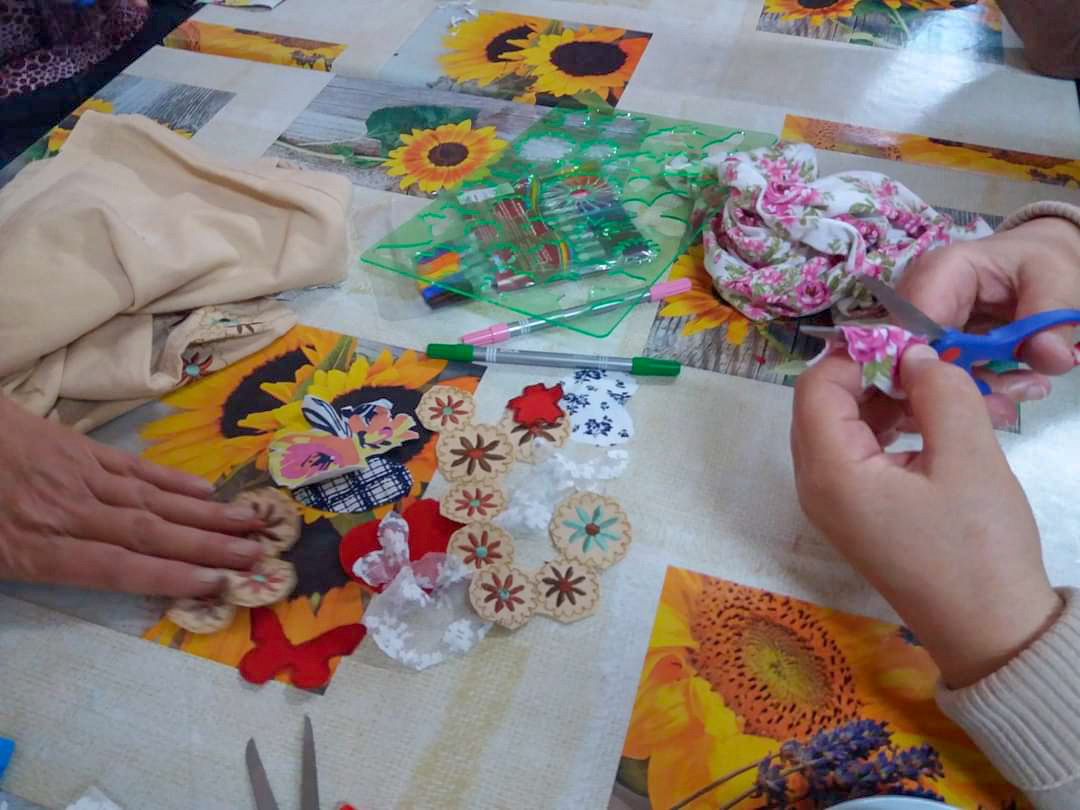
In order to make the “Grandma’s Corner” even a better place, the Association needs volunteers. People who are ready to spend some time with grandmas and grandpas, and to implement certain activities.
The Banja Luka Centre for Social Work did not agree to a live interview about the work of the “Grandma’s Corner” and about its impact on the elderly. They said in writing how they were supporting the “Corner” based on the Decision on the Prevention Program for the Protection of the Elderly, the aim of which is to improve the social status of older people and to empower them to be able to stay in their natural environment.
“The special value of this daily centre lies in organised activities, such as creative workshops and peer support for the population that visits the “Grandma’s Corner”. The support that the Centre for Social Work gives to the organisation of community services is reflected in the planning of services at the level of the local community, being financed from the City’s budget. The planning primarily relates to funds allocation forecast, so that money could be provided in the budget of the Centre for Social Work”, the Centre says.
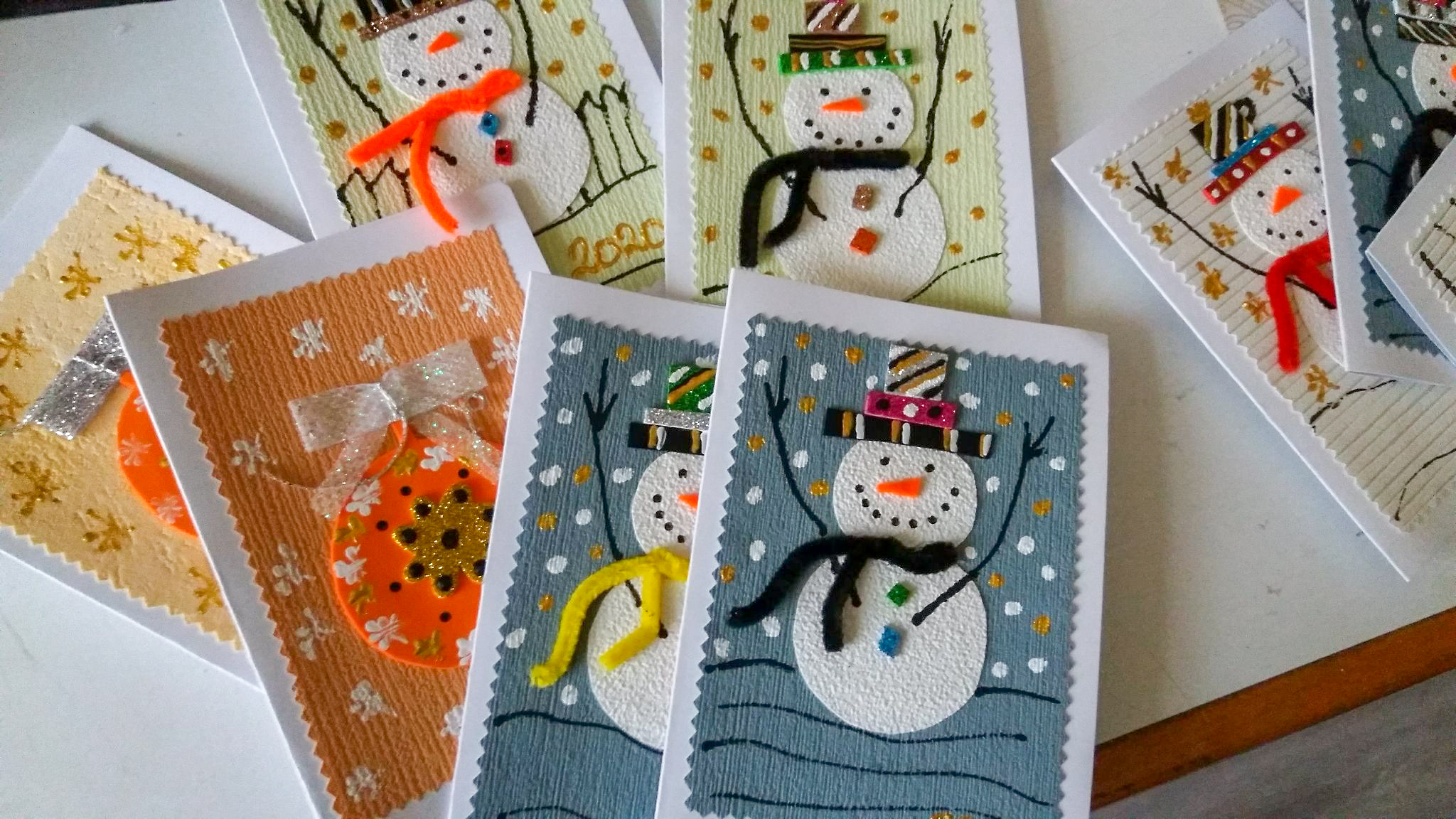
They draw our attention to the fact that there is another program for the elderly in Banja Luka, called “Healthy Aging”, being organised in the Rosulje settlement “Social Centre”. From Monday to Thursday, from 9:00 to 9:45, this Centre organises classes of preventive-corrective gymnastics for the third-age population. However, this program does not offer everything that the “Grandma’s Corner” does.
“The “Grandma’s Corner” is a place where people satisfy their needs for companionship, for socialisation in the third age, for the preservation of the remaining working abilities, but most importantly for the prevention and maintaining of mental health in the community, through peer support”, the Centre for Social Work adds.
Although older people are generally in a bad position as a result of low income and poor social life, women are more vulnerable than men. This is confirmed by Nada Golubovic (77), one of the oldest activists in Banja Luka, and the founder of the “United Women” Foundation.
“Women are terribly lonely. There are more activities for men, there are chess clubs and hiking societies for the elderly. Women live longer than men, and they eventually end up alone at home. As long as they can help, as mothers, as grandmothers, older women feel great. However, when their help is no longer needed, they become very lonely and alone”, she highlights.
Nada earned her pension by working for the Institute of Nuclear Medicine, and believes that she is one of the privileged women, given that her company is made up of both younger and older women.
“However, some colleagues of mine, who have retired, are practically trapped inside their houses and have no opportunities for entertainment. We need some clubs where they could talk about books, for example. Some women are skilful in crocheting and knitting, which might also be a good idea to organise. Still, women do not do that, they just sit at home. For them, life is practically over”, she claims.
We often see older people in the waiting rooms of doctors’ offices. But some of them come for another reason, just to talk to someone. She mentions an example of one person who she knows, who publishes fake ads that she is selling an apartment she lives in, just to have people come and see her apartment so that she could have someone to talk to.
“This has been going on for four, five years. There is no other way for her than to get people over, even by fraud, so that she could have a conversation with a living being”, she explains.
She points out that a big problem in the BaH society is the stigmas associated with mental health. If you are an older person with mental disabilities, the situation gets further complicated.
“We have a stigma towards every mental illness. If you are old, and in addition undergo treatment at the Centre for Mental Health, start taking antidepressants, you will be written off by the majority, even by your closest friends”, she underlines.
Pensioners belong to the most vulnerable category of population. Some of their major problems are poverty and loneliness. The average pension in the Republic of Srpska for the month of December 2023 was 541 BAM (277 EUR). The police annually records about 200 suicides in the Republic of Srpska. In 60% of cases, the suicides are committed by persons over 60 years of age. Mainly men.



